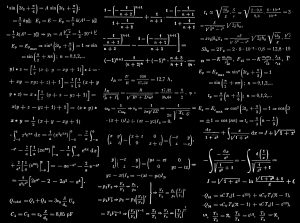Mental Math: Unlocking the Power of Abacus for Your Child’s Cognitive Development

Introduction
As parents, we all want the best for our children. We understand that a good education is crucial for their future success. When it comes to mathematics, some children struggle, and we often wonder how we can help them. This is where mental math and the abacus come into play. Mental math is not just an academic skill; it is a life skill that enhances cognitive abilities and problem-solving skills. In this blog post, we will explore the benefits of mental math and how SIP Abacus, a renowned educational program in India, utilizes the abacus methodology to unlock your child’s potential beyond academics.
Abacus Benefits: Enhancing Cognitive Development
-
Enhanced Problem-Solving Skills
Mental math encourages children to think critically and solve problems quickly. By practicing mental calculations, children develop agility in their thinking and can apply these skills to real-life situations. Whether it’s estimating total costs while shopping or calculating change without a calculator, mental math provides practical problem-solving abilities
-
Improved Cognitive Development
Engaging in mental math strengthens neural pathways in the brain, leading to better memory, concentration, and overall cognitive function. Children who practice mental arithmetic often demonstrate enhanced logical thinking and reasoning abilities. The power of mental math extends beyond just numbers; it helps children develop vital cognitive skills that are applicable across various subjects.
-
Increased Numerical Fluency
Regular practice with mental math helps children understand numbers better, promoting fluency that makes advanced mathematical concepts easier to grasp. This foundational knowledge is essential for tackling more complex topics later on. Mental math lays a strong numerical foundation that supports your child’s mathematical journey.
-
Life Skills Development
Beyond mathematics, mental math fosters essential life skills such as discipline, perseverance, and resilience. By engaging in mental calculations and problem-solving tasks, children learn to approach challenges with confidence and a positive mindset. These skills are valuable not only in academics but also in personal and professional contexts.
-
Confidence Building
As children master mental calculations, they gain self-esteem and a positive attitude towards learning. The ability to perform mental math boosts their confidence and motivates them to take up new challenges. This confidence can translate into improved performance across various subjects, not just math.
|
Aspect |
Details |
|---|---|
|
Cognitive Development |
Abacus training enhances cognitive abilities such as memory, concentration, visualization, and problem-solving skills. It engages both hemispheres of the brain, promoting balanced brain development. |
|
Mental Math Skills |
Regular practice with the abacus beads strengthens mental arithmetic abilities, enabling children to perform complex calculations quickly and accurately without relying on physical tools. |
|
Concentration and Focus |
Manipulating beads on the abacus requires intense focus, which helps improve children’s attention spans and concentration levels, benefiting their overall learning experiences. |
|
Memory Enhancement |
Abacus training improves working memory by encouraging children to visualize bead movements and remember their positions during calculations, leading to better retention of information. |
|
Problem-Solving Abilities |
Learning to use an abacus fosters logical thinking and systematic approaches to problem-solving, skills that are valuable across various academic subjects and real-life situations. |
|
Confidence Building |
As children master abacus techniques and see improvements in their math skills, they gain confidence in their abilities, which positively affects their performance in other subjects as well. |
|
Engaging Learning Experience |
The interactive nature of abacus training makes it enjoyable for children, fostering a love for learning and encouraging them to engage actively in their educational journey. |
|
Long-Term Academic Benefits |
Skills developed through abacus training extend beyond mathematics; improved concentration, memory retention, and problem-solving abilities contribute to success in various academic areas and life challenges. |
SIP Abacus Training: Developing Cognitive Skills with Abacus
SIP Abacus, a leading educational program in India, incorporates mental math training into its curriculum, focusing on both academic and personal development.
-
Structured Curriculum: The program offers a structured curriculum that caters to different learning levels. It gradually introduces complex calculations while ensuring a solid foundation in basic arithmetic. This step-by-step approach allows children to progress at their own pace and build a strong mathematical base.
-
Engaging Learning Methods: SIP Abacus uses interactive activities and gamification to make learning enjoyable and reduce anxiety associated with math. The program incorporates fun learning techniques that keep children engaged and motivated throughout their journey. By turning learning into play, SIP Abacus creates an environment where children actively participate in their own education.
-
Focus on Cognitive Skills: While the program primarily focuses on the enhancement of mathematical skills, it also plays a significant role in fostering cognitive development among children. The practice of mental math, particularly through using an abacus, has been found to stimulate essential cognitive abilities that are crucial for overall growth and learning. Engaging in mental calculations helps children train their minds to concentrate, remember numbers, and develop problem-solving strategies, all of which are fundamental skills for cognitive advancement.
Furthermore, the benefits of mastering mental math extend beyond mere arithmetic proficiency, as the cognitive skills acquired through this practice are transferable to various areas of a child’s life. Through consistent practice with the abacus, children not only improve their mathematical abilities but also strengthen their cognitive functions, such as decision-making, analytical thinking, and logical reasoning. These cognitive skills are valuable assets that can assist children in academic pursuits, professional endeavours, and everyday problem-solving scenarios.
Real-Life Applications of Mental Math
Children trained in mental math can apply their skills to various everyday situations, making their lives easier and more efficient:
-
Shopping: Estimating total costs and calculating change without needing a calculator.
-
Time Management: Figuring out how long tasks will take or when to leave for appointments.
-
Cooking: Adjusting recipes by mentally calculating ingredient quantities.
-
Financial Literacy: Managing allowances or savings goals through quick calculations.
Conclusion
Mental math is a vital life skill that equips children with the tools they need for academic success and everyday challenges. The benefits of learning abacus go beyond mathematics; it fosters cognitive development, problem-solving abilities, and essential life skills. SIP Abacus offers a comprehensive program that taps into the power of mental math and the abacus methodology, helping children unlock their full potential. By enrolling your child in this program, you are providing them with a strong foundation in mathematics and cognitive skills that will benefit them throughout their lives.
SIP Abacus’ offerings provide world-class skill development programs designed to unlock the mental potential of children through fun learning methodologies. Their curriculum is structured into different levels, catering to various age groups. SIP Abacus classes are conducted offline in small groups, ensuring personalized attention and effective learning. The program not only develops strong mental math abilities but also improves focus, concentration, and overall intelligence. Studies have shown that children who complete the SIP Abacus program perform significantly better in math and reading at school, often ahead of their peers by several years within a short period of joining. The approach of developing both sides of the brain through mental math has proven effective in nurturing children’s academic growth and overall development.
So, why wait? Embrace the power of mental math and provide your child with the tools they need to succeed in academics and beyond. Start their SIP Abacus journey today and witness the remarkable transformation in their mathematical skills and cognitive abilities.



